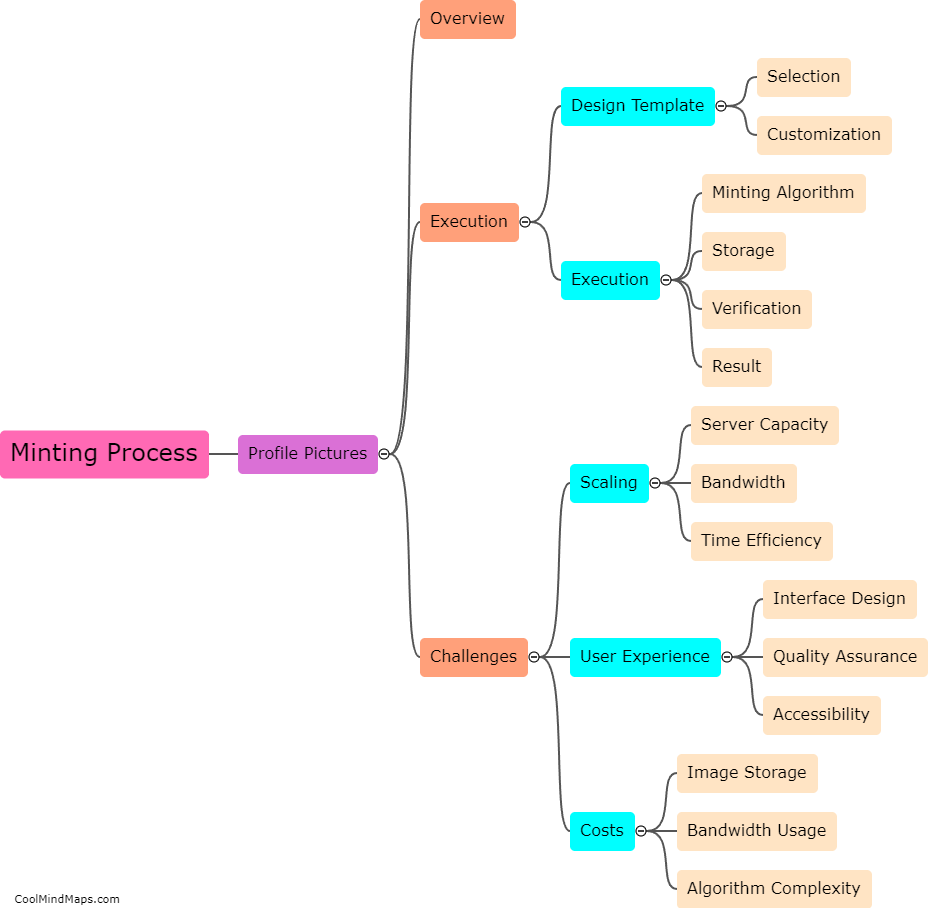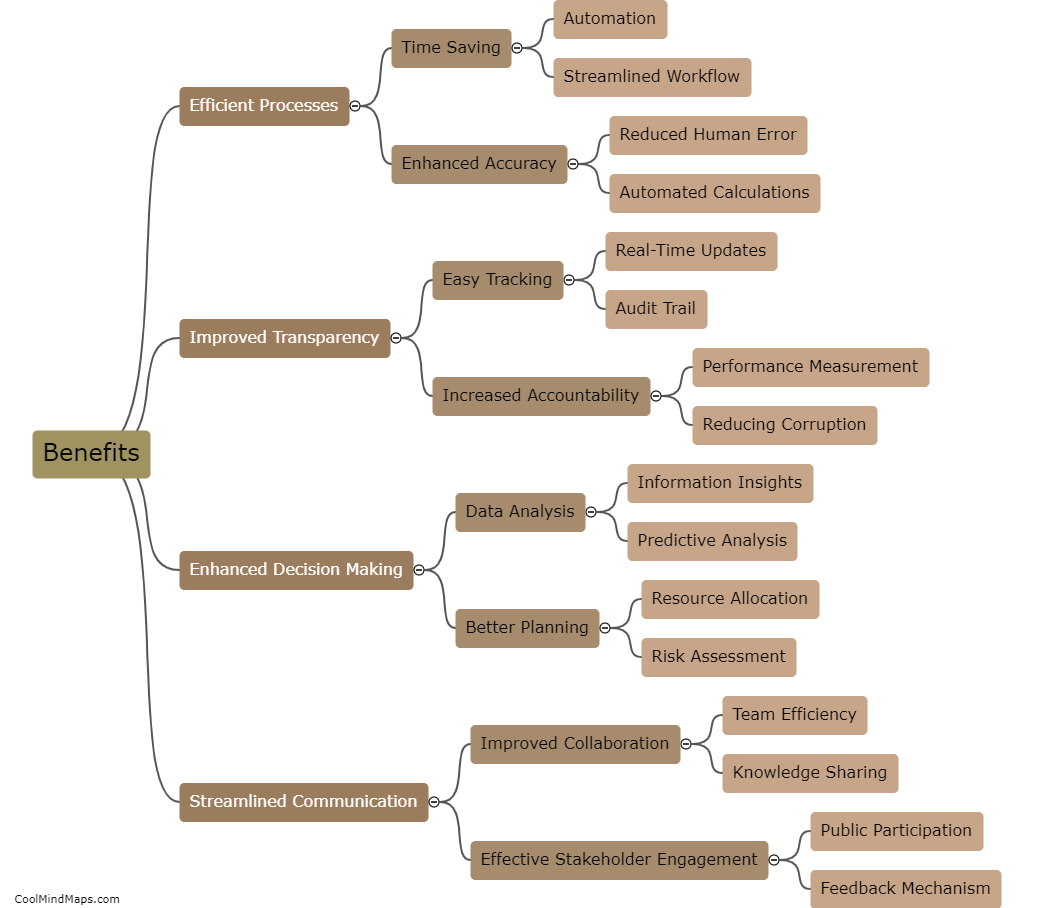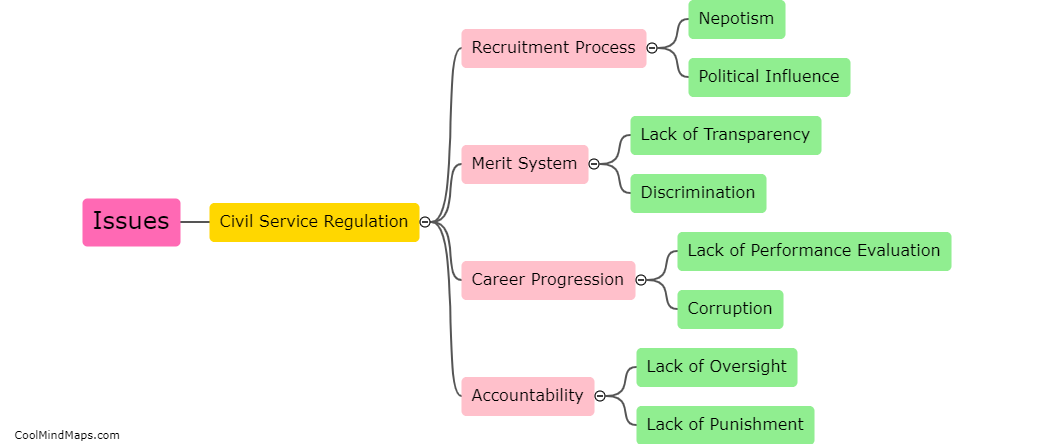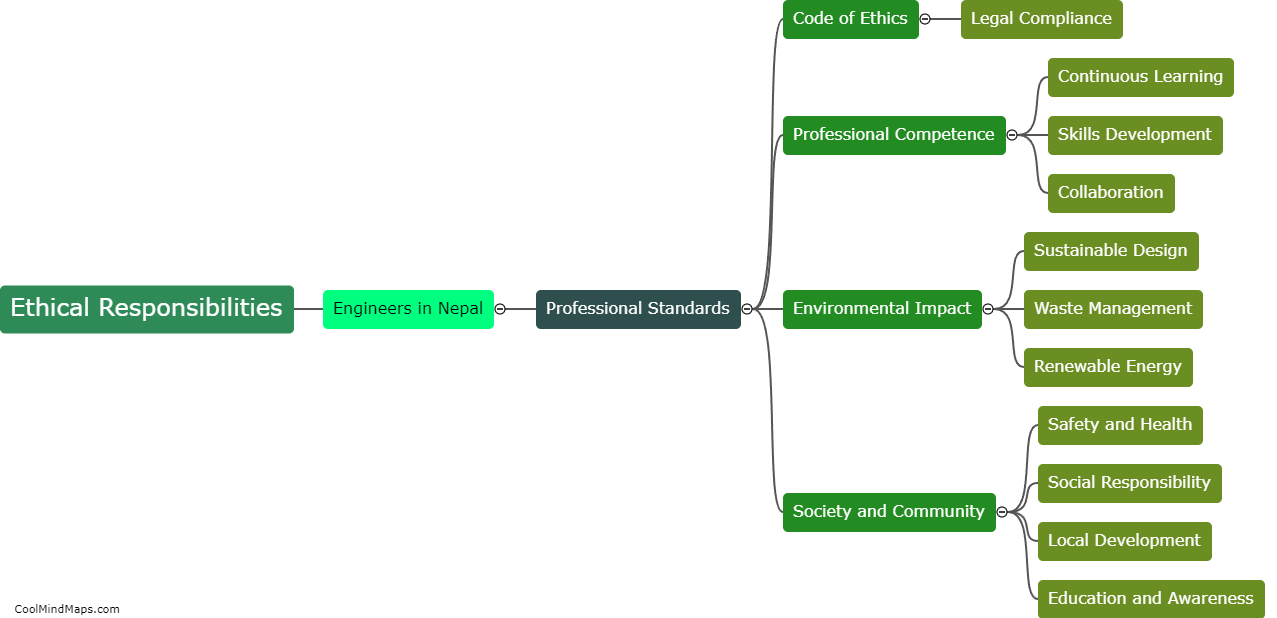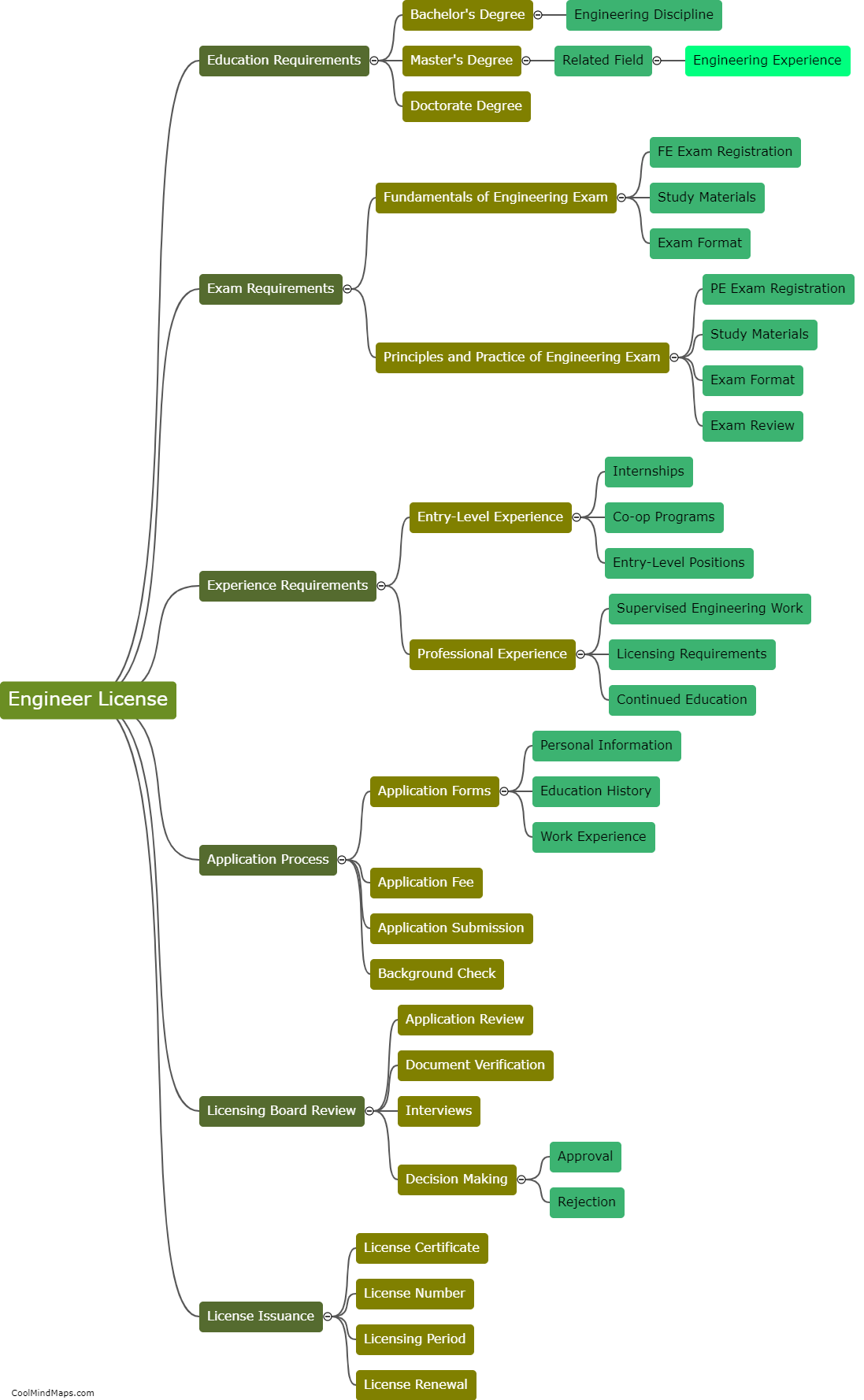What are the expected outcomes of the reforms in civil service regulation?
The expected outcomes of the reforms in civil service regulation are anticipated to be diverse and beneficial. Firstly, these reforms aim to improve efficiency and productivity within government departments by introducing modern management techniques and streamlining bureaucratic processes. As a result, citizens can expect to see more responsive and effective public services. Additionally, reforms may promote transparency, accountability, and meritocracy in the civil service, reducing corruption and favoritism. This can enhance public trust in government institutions and contribute to the overall integrity of the civil service. Ultimately, the anticipated outcomes of these reforms are a more efficient, accountable, and trusted civil service that can better meet the needs and expectations of citizens.

This mind map was published on 27 November 2023 and has been viewed 82 times.
